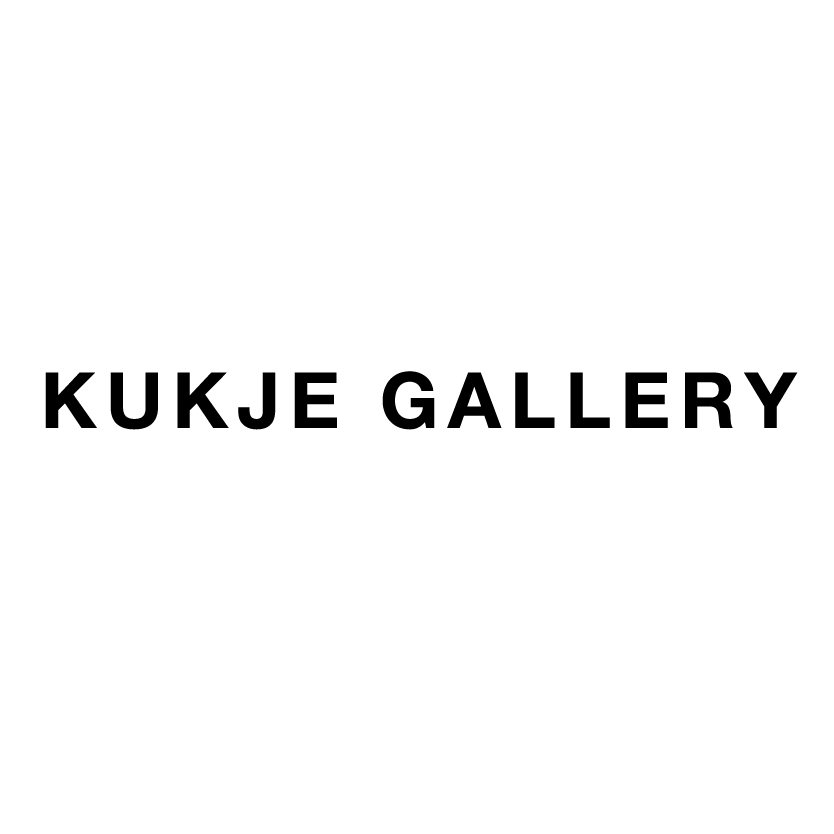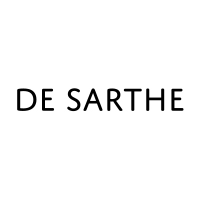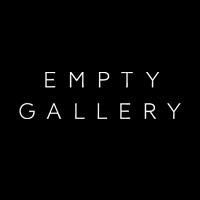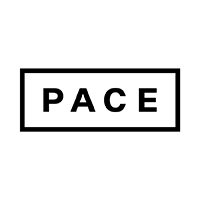Paving “The Way Forward”
By Annette An-Jen Liu
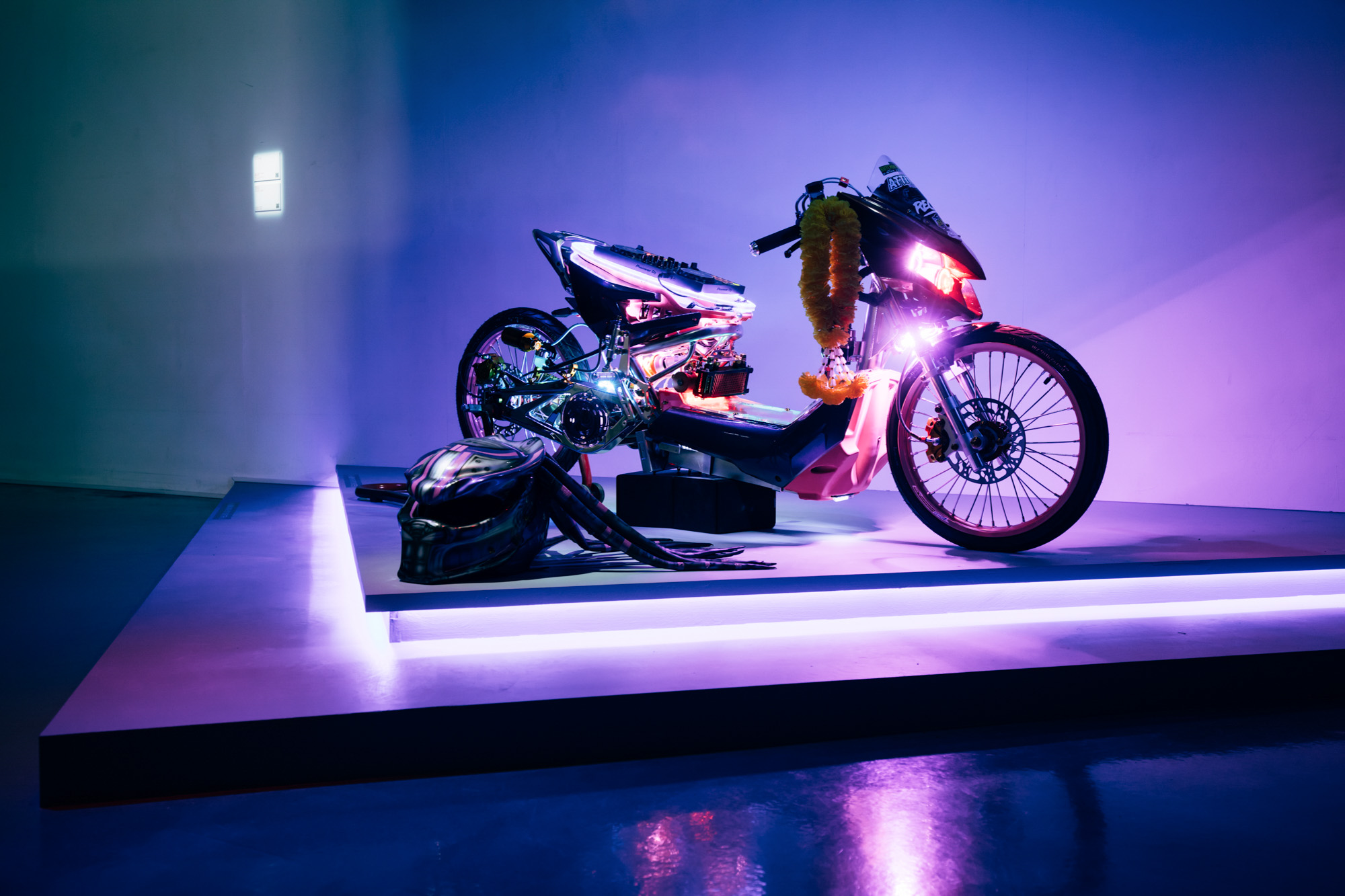
MARLON CARAIG MENDOZA and DIMENSION PLUS’s DJOK Station, 2022, electric motorcycle, remixed soundtrack, DJ controller, LED installation, dimensions variable. All images courtesy the Taoyuan Art x Technology Festival.
Compared with Taiwan’s other municipalities, Taoyuan has had the fastest growing population over the past three years. Located in north-western Taiwan, the region is home to several industrial parks and has the highest annual industrial output. These factors make it the “best environment for cultural and technological development,” as Chuang Hsiu-mei, director of the Taoyuan Department of Cultural Affairs, describes. The Taoyuan Art x Technology Festival (TAxT) was founded in 2017 by the city government to cultivate creative production among artists working with technology, and to facilitate innovations in local industries. In its fifth year, TAxT invited Escher Tsai, who curated the inaugural festival with his studio Dimension Plus, to return to the curatorial helm.
The result was “The Way Forward,” an exhibition of 23 works by international artists and collectives at Taoyuan Arts Center, centered on “post-pandemic global trends” in digitization and decentralization, and new—or streamlined—ways of living, producing, and creating. The exhibition comprised four sections: “Generative Art x 5G Immersion,” “Robotic Arms x Industrial Strategy,” “Digital Discourse Power x Circular Economy,” and “Apocalypse Eve x Scientific Research Experiment.” Crossing over disparate ideas, the section titles indicated the speculative nature of a lot of the works, which were displayed in a Tron-like, sci-fi-esque setting with windowless rooms and reflective floors lit with neon, spotlights, LED screens, and projections.
Presented on a triangular platform illuminated with a purple-magenta glow was DJOK Station (2022), a custom E-Bike with a DJ mixer, designed by Marlon Caraig Mendoza with Dimension Plus. The vibrant, metallic bike was the first work in the exhibition, and alludes to the sizeable foreign worker population in Taoyuan, for whom customizing and refitting electric bikes—a cheaper, more convenient mode of transportation—is a popular trend. Mendoza is from the Philippines and has been working in Taiwan as a machine operator for almost nine years. He began creating E-Bikes in 2019. The bike is adorned with a marigold wreath, a detail that feels declarative and celebratory. Meanwhile the DJ mixer was inspired by karaoke, a widespread recreational activity in both Taiwan and the Philippines that effortlessly brings people together. Audiences can play with the console and experiment with remixed audio sources by Taiwanese DJ RayRay. The original files, made by producer Aqua, are field recordings of places and people around Taoyuan, such as the airport, a textile factory, and the marching of honor guards, making DJOK Station an innovative, interactive piece that speaks to the locality of the city.
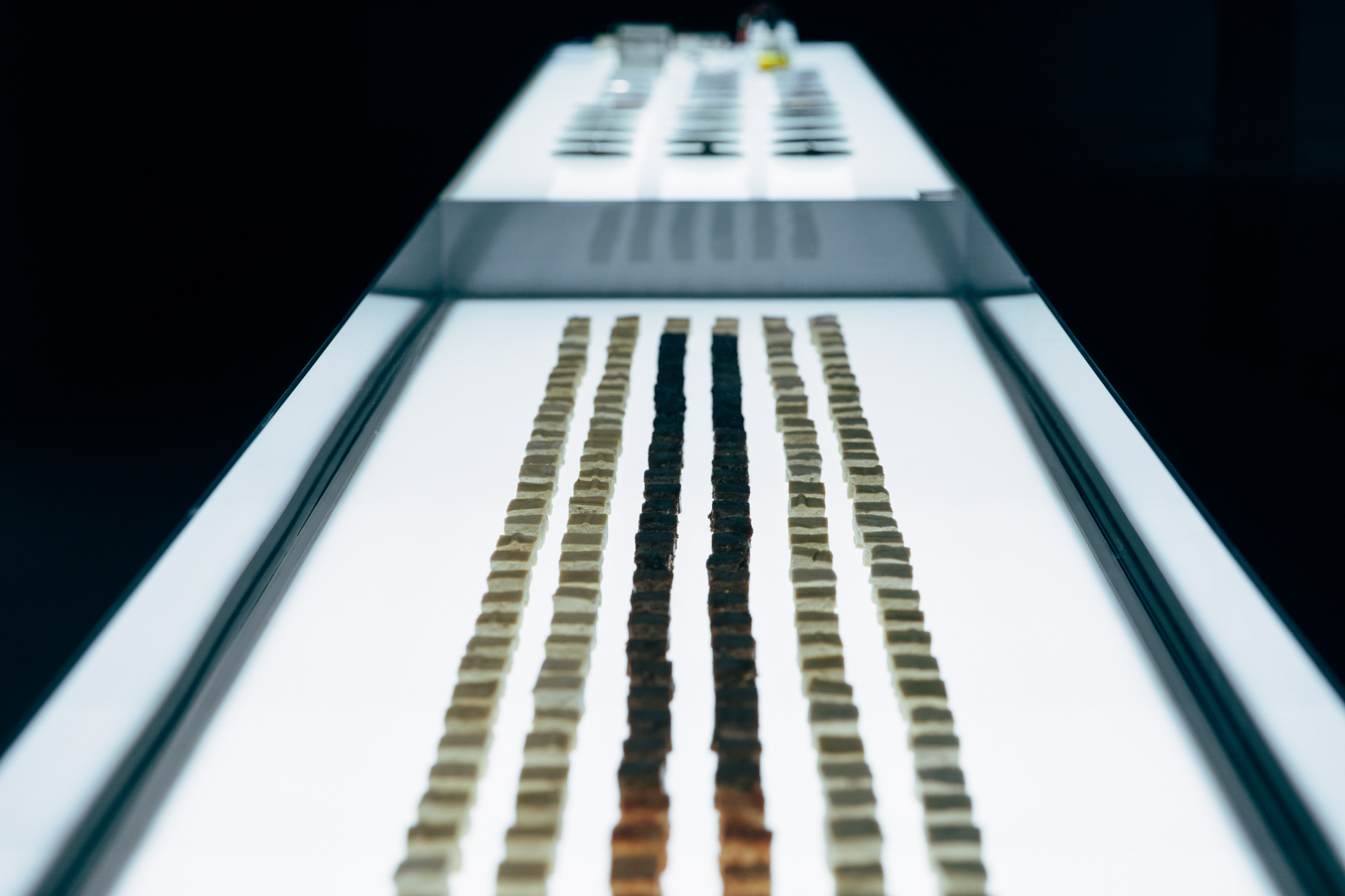
OYAMA RYU and ANDREAS SIAGIAN’s Tofu Experiment, 2022, rock, sound device, tofu, salty tofu curds, fermented tofu curds, digital prints, dimensions variable.
In the “Digital Discourse Power x Circular Economy” section, Tofu Experiment (2022) likewise relates to Taoyuan. For the project, artists Oyama Ryu and Andreas Siagian collaborated with Ta Fang Foods, the pioneering bean-curd manufacturer from Daxi District. The experiment homes in on the coagulation step in tofu-making, and explores alternative coagulants extracted from minerals. Presented across two lightboxes, the tofu variants that resulted from the experiment were of different colors and firmness. Though the results may not immediately lead to a replacement for the centuries-old methods for producing tofu, with respective backgrounds in pharmacology and civil engineering, Ryu and Siagian sought to examine the indivisible relationship between the body, land, and food production through their engagement with an agricultural process, offering insight into how natural materials may be utilized to advance current technologies within local industries.
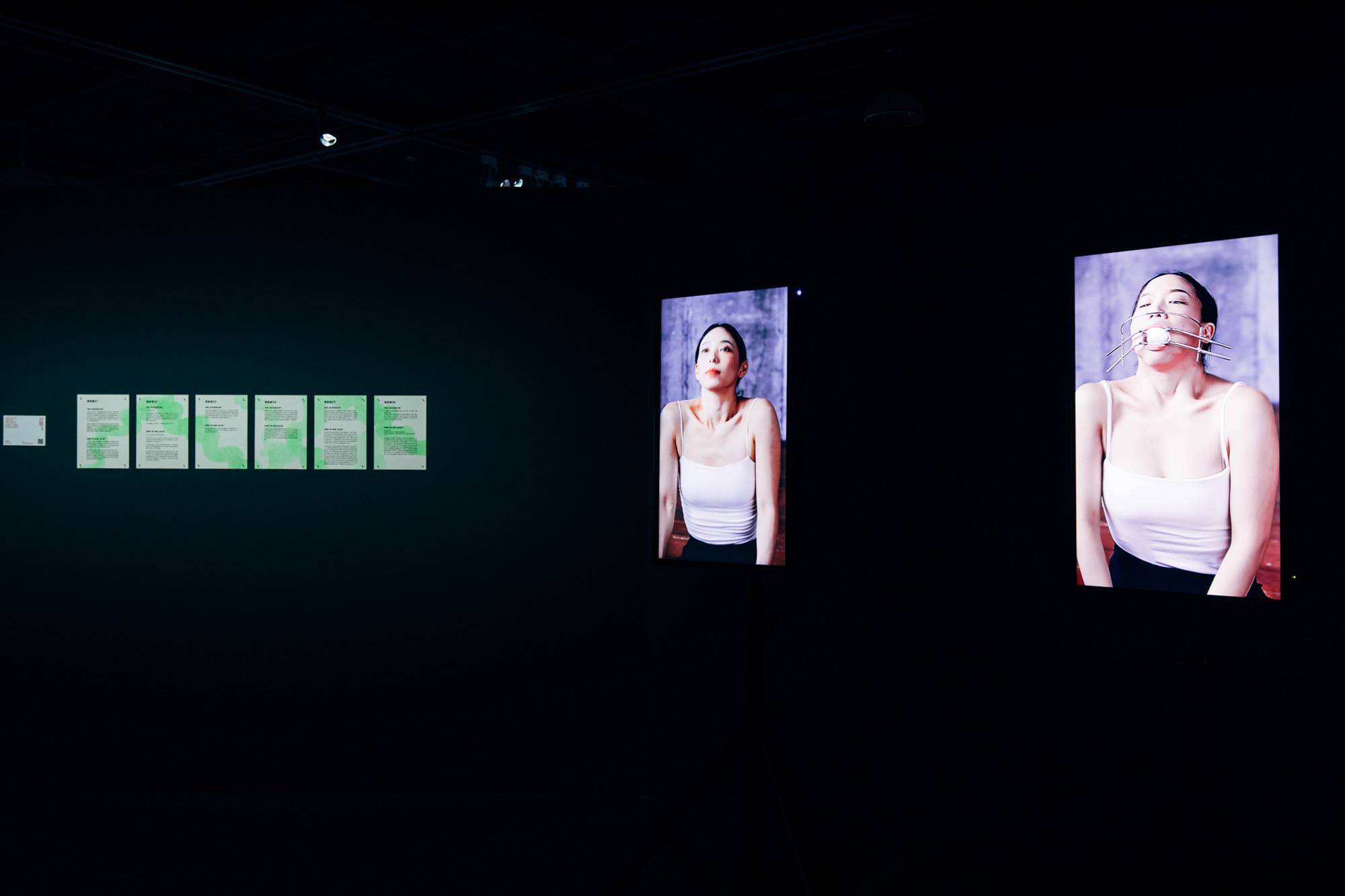
PAUL GONG’s The Sixth Sense Project: Survival Exercises, 2022, two-channel video, pheromone-emitting device, vomeronasal organ exerciser, prints, dimensions variable.
Another highlight work came from the “Apocalypse Eve x Scientific Research Experiment” section, which was framed around the Latin and Greek roots of the word “apocalypse,” meaning to uncover and reveal. Paul Gong’s The Sixth Sense Project: Survival Exercises (2022) explores human vestigial organs, with an olfactory focus. Gong has created wearable devices meant to improve proprioception—the body’s perception of movement and positions in space. The research project features a video of two dancers, one of whom is wearing the device. Alongside an olfactory display of smells, it also depicts a series of interviews with scientists and academics on the role of the two senses and the significance of vestigial structures, providing a framework to think about the body’s evolutionary development, and the relationship between such features and functions.
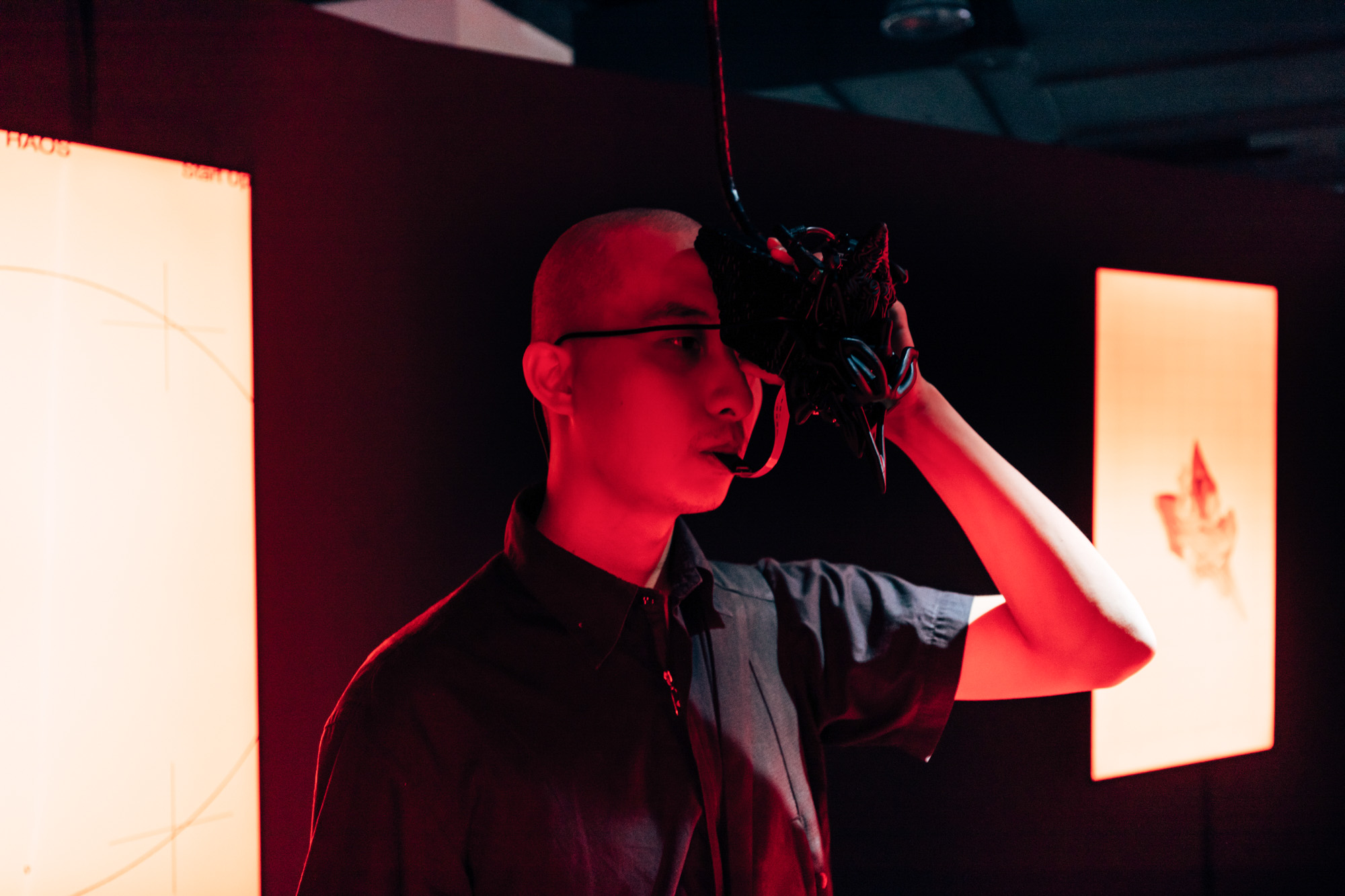
JIUN TING LAI and YUE TONG ZHAN’s Human-like Non-human Electrical Illusion, 2022, video, electronic chip, 3D model, metal installation, dimensions variable.
A similar sensory investigation is found in Human-like Non-human Electrical Illusion (2022) by artist duo Jiun Ting Lai and Yue Tong Zhan of Cognitive Savage. Their installation, included in the same “Apocalypse Eve” section, experiments with different voltages that generate “electric perceptions” from the tongue, stimulating the sense of taste without food to promote “human cognitive enhancement.” The work invites audiences to wear a device that places a metal plate on their tongue as electric currents flow through. The sensation is described as popping candy-like, and the movement of the tongue is captured on a thermal camera, with its imaging streamed on a screen. The effects of this “enhancement” are unclear, but the work attempts to reflect on perceived realities and illusions, commenting on how technological tools may assist yet deceive.
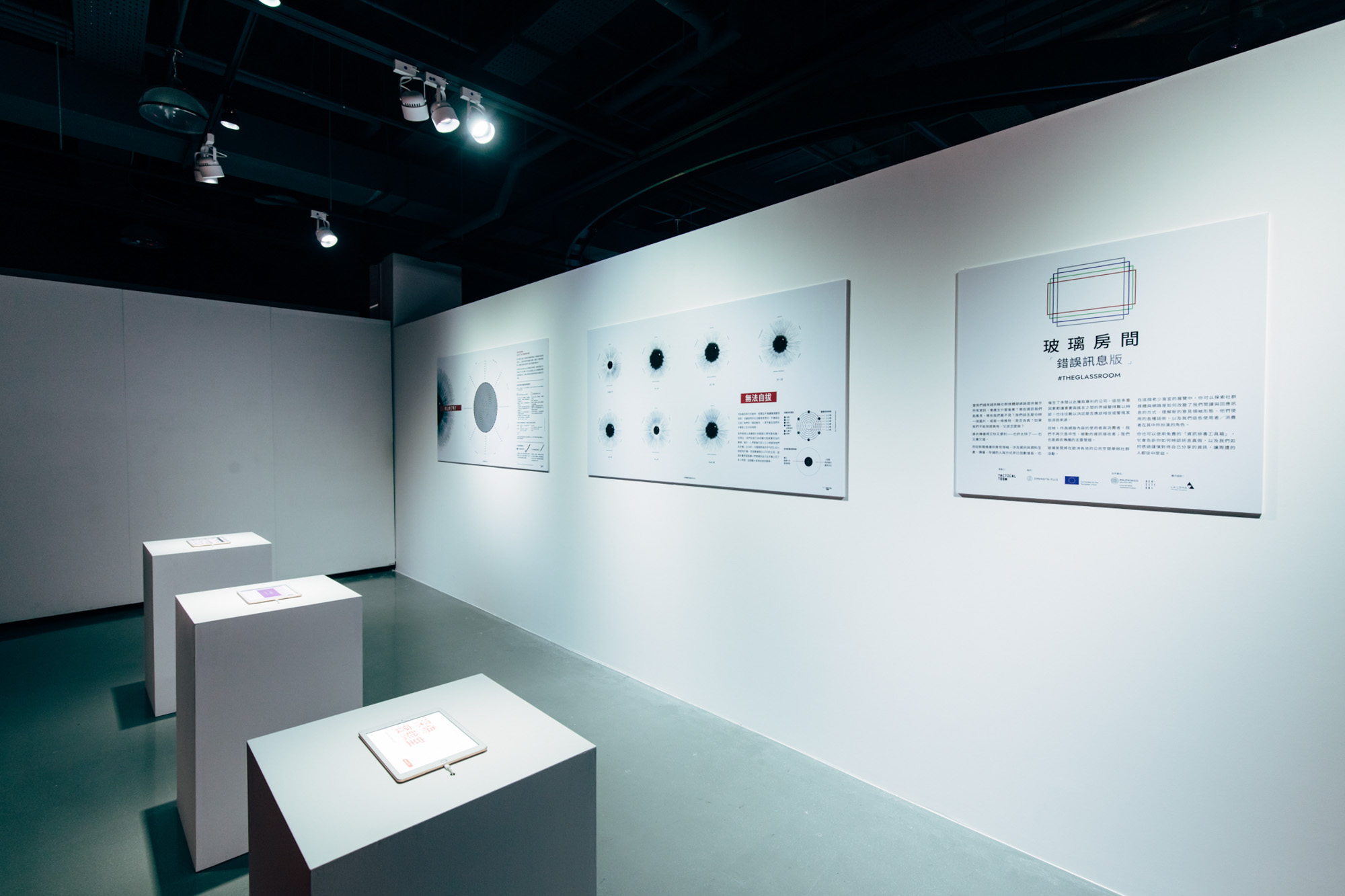
TACTICAL TECH’s The Glass Room (Misinformation Edition), 2022, poster, video, website, dimensions variable.
This slightly sinister tone was echoed throughout “The Way Forward,” and was made most obvious in the lengthy, text-based research presentation by the Berlin-based NGO Tactical Tech. Titled The Glass Room (Misinformation Edition) (2022), the work details the importance of basic digital literacy at a rather rudimentary level—a breakdown that is perhaps necessary, nonetheless, as out of context, fake, and misrepresented images or information continue to saturate our digital spaces where user’s attention spans are diminishing. While the 2022 TAxT festival celebrated wide-ranging, exciting possibilities between art, design, and technology, it also set out to remind viewers to be critical in engaging and living with technology.
The 2022 Taoyuan Art x Technology Festival was on view at Taoyuan Arts Center from September 9 to October 9, 2022.

